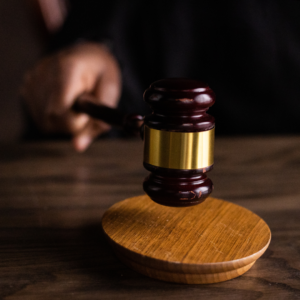As of December 2, 2020, courts in Miami-Dade County and much of the state entered “Phase 2” of the Comprehensive COVID-19 Emergency Measure for Florida Trial Courts. This move essentially allows in-person contact for specific purposes with protective measures in place.
In an administrative memorandum released January 21, 2021, the Circuit Court of the Eleventh Judicial Circuit in Miami Dade County explained the new measures they are enacting to resume a limited number of jury trials. The court cited the existing backlog of cases due to the closure of courts and the temporary suspension of jury trials during the COVID-19 pandemic and the need to move cases forward.
Judge Jennifer D. Bailey explained in the memorandum that the court saw a need to establish a system to certify cases that are ready for trial with a goal to restore efficiency in the courts and manage delayed cases, with safety being a priority.
Rules for In-person Circuit Civil Jury Trials
Getting these trials running will require coordination and cooperation among everyone involved: judges, clerks, lawyers, and litigating parties. During a trial, anyone not associated with the case will not be cleared to enter the building. Start times will be staggered among the cases to assure effective and safe access to the building and elevator.
The memo outlines the following rules to all in-person circuit civil jury trials during the pandemic:
- A trial can only be held in courtrooms assigned by the Administrative Office of the Courts. Courtrooms will be assigned space based on the social distancing needs of the case. Locations cannot be changed without the approval of the Administrative Judge or Associate Administrative Judge.
- All trials must be conducted in compliance with all CDC guidelines, including masks being worn at all times and practicing social distancing.
- Pre-qualification of jury panels by Zoom is available and recommended, to identify and resolve any issues before potential jurors report to the courthouse.
- The jury panel and subsequently-chosen jury will report directly to the courtroom. Parties, witnesses, and counsel will report to their designated spaces, then enter the courtroom when trial commences. All pretrial motions must be resolved before trial commencement. Extended legal arguments during the trial should occur on juror breaks or before the jury’s arrival for the day or after the trial session has concluded for the day and the jury is dismissed. Judges must coordinate trial days with the Administrative Office of the Courts so that juror arrival and departure are done so safely, within the new socially-distant elevator procedure. Everyone involved in the trial must cooperate to assure the safest and best practices are consistently used.
- Methods of evidence submission and display must be determined by the court in advance to avoid sharing/handling of exhibits.
- Extended hours will not be available except in emergencies due to coordination and staffing issues. All requests for extended hours must be submitted no later than 3 p.m. and approved by the Administrative Judge or Associate Administrative Judge.
New Trial-Ready Certification Methodology
 The courts outlined new specific methodologies for any cases lasting longer than 7 days and conventional trial settings to help coordinate courtroom usage to ensure the safety of everyone involved. This methodology includes ensuring discovery and examinations are complete, pretrial motions have been filed and ruled upon, jury instructions have been filed, and estimated trial time has been established. Once all the necessary events are complete, the Court may certify that the case is ready.
The courts outlined new specific methodologies for any cases lasting longer than 7 days and conventional trial settings to help coordinate courtroom usage to ensure the safety of everyone involved. This methodology includes ensuring discovery and examinations are complete, pretrial motions have been filed and ruled upon, jury instructions have been filed, and estimated trial time has been established. Once all the necessary events are complete, the Court may certify that the case is ready.
Division judges will work together with the Administrative Office of the Courts to request trial periods and set calendars to assure availability. Judges will be able to use both methodologies combined, understanding that trial resources will need to be distributed equitably across divisions.
The court is making a clear point that everyone should be held to their schedule to not keep jurors waiting and to limit time in the building. These new procedures will be followed to ensure the safety of all involved and accommodate for social distancing.
Focused on Moving Cases Forward
Our team at Panter, Panter & Sampedro is doing all that we can during these challenging times to make sure that your case is being reviewed, monitored, and pursued. We are also following all guidelines to keep our staff, our families, and our communities safe. Our attorneys are accepting new cases and continuously working on all current cases. If you have any questions or concerns, please give us a call at (305) 662-6178.
Sources:
Eleventh Judicial Circuit Court Miami-Dade County, Florida. (25 January, 2021).
Retrieved from:
Florida Court Status as of December 2. Office of the State Courts Administrator. Retrieved from: https://flcourts.org/Publications-Statistics/Publications/Courts-Phase-Status
